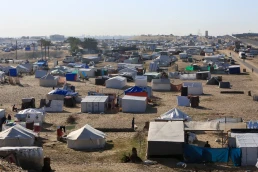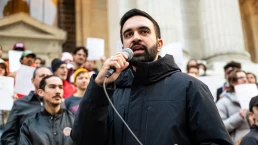Nuclear secrecy does not equal nuclear security, says analyst Matt Korda
by Matt Korda, Outrider
No one wants to see new countries develop nuclear weapons or see non-state actors get their hands on the bomb. To that end, certain information about nuclear weapons––in particular, details about how to build or access them––should remain classified.

But not all information about countries’ nuclear weapons should be kept secret. And in recent years, nuclear-armed states have increasingly––and unnecessarily––withheld critical details about their nuclear arsenals from their publics, allies, and adversaries.
Ambiguity about nuclear stockpiles, deployments, and employment policies can lead to worst-case assumptions about how countries will develop or use nuclear weapons in the future––thus exacerbating the arms race and increasing the possibility of miscalculation, particularly during times of heightened nuclear tensions.
In contrast, Jon Wolfsthal––former National Security Council Senior Director for Arms Control and Nonproliferation during the Obama administration––suggests that nuclear transparency can actually bolster U.S. deterrence objectives.
“The idea that declassifying the total number of weapons we have, or deploy, or that our operation will somehow make it easier for adversaries or competitors to compete with or defeat us is nonsensical,” says Wolfsthal. “Either we have a reliable, survivable retaliatory force (which we do), or we don’t. If we do, we should be clear and assertive about it, to show that we are both confident in our forces and that our allies should be confident in them too.”
Recent Posts
Stop Israel’s Dystopian “Humanitarian City” Plan—Before It’s Too Late
July 11, 2025
Take Action Now For the past 20 months, the world has watched—and largely enabled—a genocidal campaign in Gaza. Over 55,000 Palestinians have been…
The “Liberal” International Order Is Criminalizing Palestine Protests
July 11, 2025
Take Action Now As Western governments repress Palestine solidarity and enable Israel’s impunity, the “liberal international order” is no longer…
Politicians Are Betraying Gen Z On Climate
July 10, 2025
Take Action Now While Gen-Zers thrift, knit, crochet, and find other ways to reduce our footprints, Trump and the GOP are greenlighting more climate…
Trump’s Deportation Threat Against Zohran Mamdani Is Shameful
July 10, 2025
Take Action Now In only half a year of Donald Trump’s presidency, he and his allies have turned deportation into an explicitly political threat…




